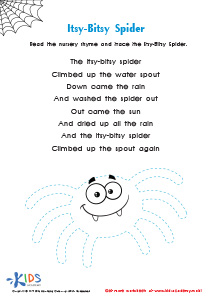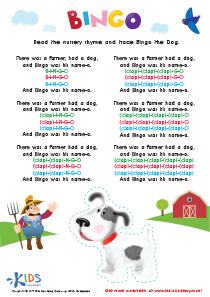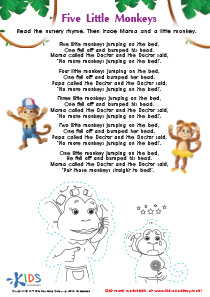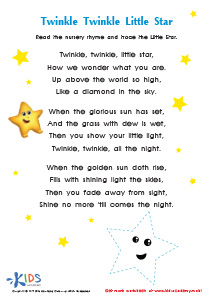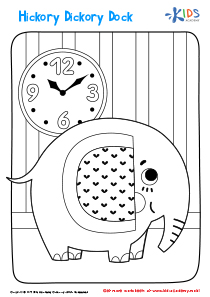Easy Nursery Rhymes Worksheets for Ages 3-9
5 filtered results
-
From - To
Discover our Easy Nursery Rhymes Worksheets designed for children ages 3-9! These engaging, educational worksheets help develop early literacy skills and foster a love for reading. Perfect for young learners, each activity seamlessly blends fun with learning through classic nursery rhymes. Kids enhance their vocabulary, practice rhyme and rhythm, and improve fine motor skills with tracing and coloring exercises. Our worksheets cater to different learning styles, ensuring an interactive and enjoyable way to boost language development. Whether in the classroom or at home, these printable resources are an excellent tool for early childhood education. Explore today!
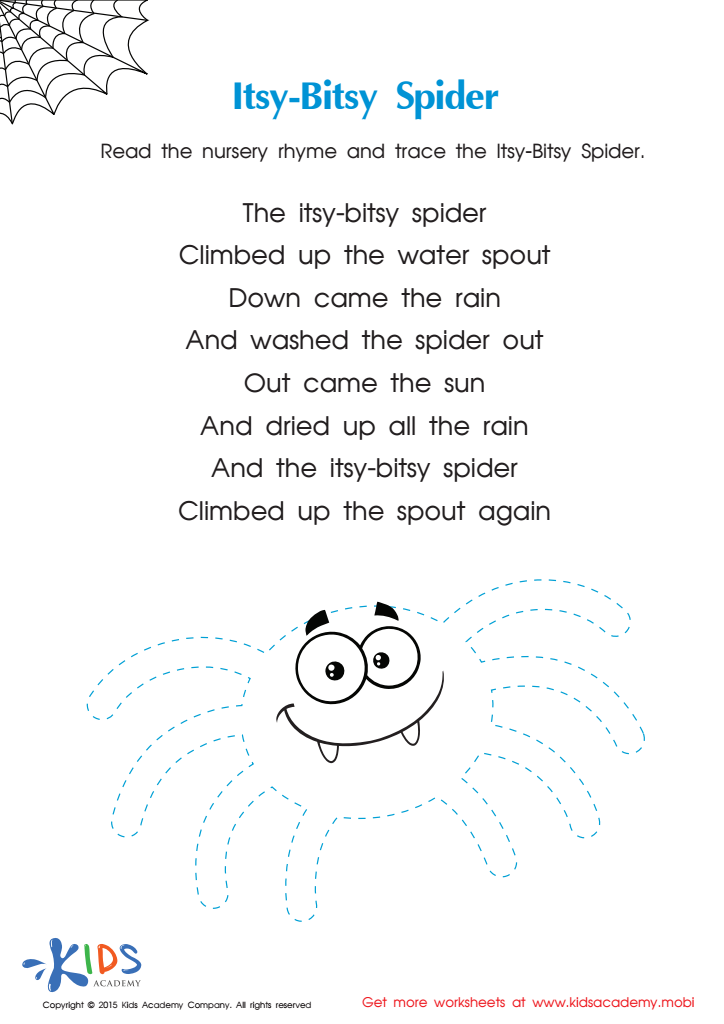

Itsy Bitsy Spider Nursery Rhyme PDF Worksheet


The Five Little Monkeys Nursery Rhyme Worksheet
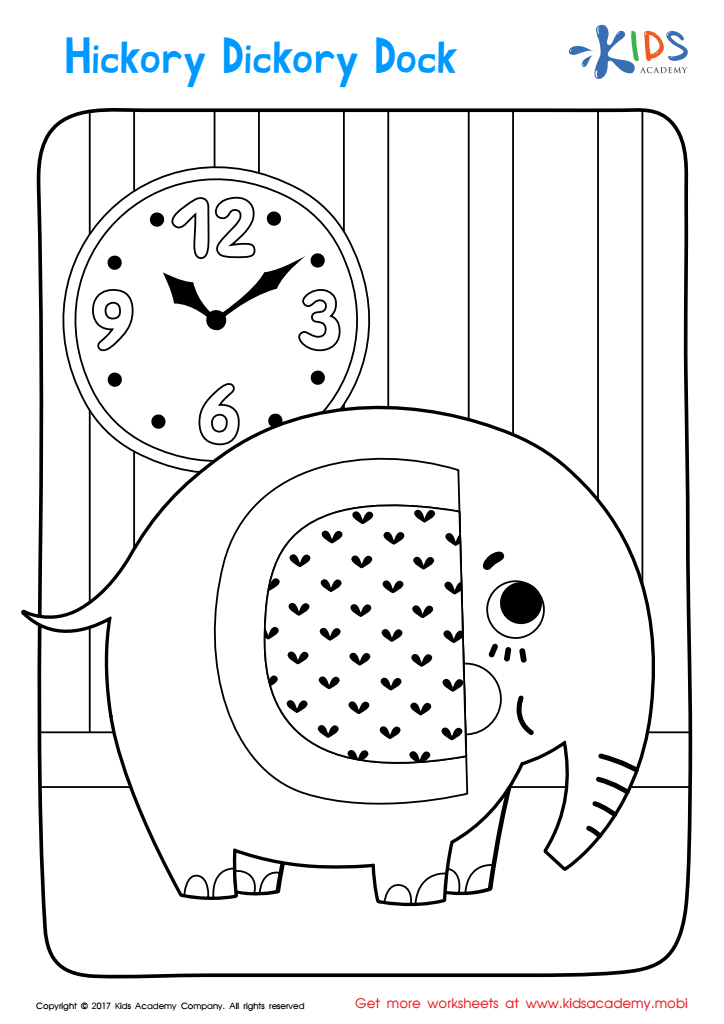

Hickory Dickory Dock Coloring Page
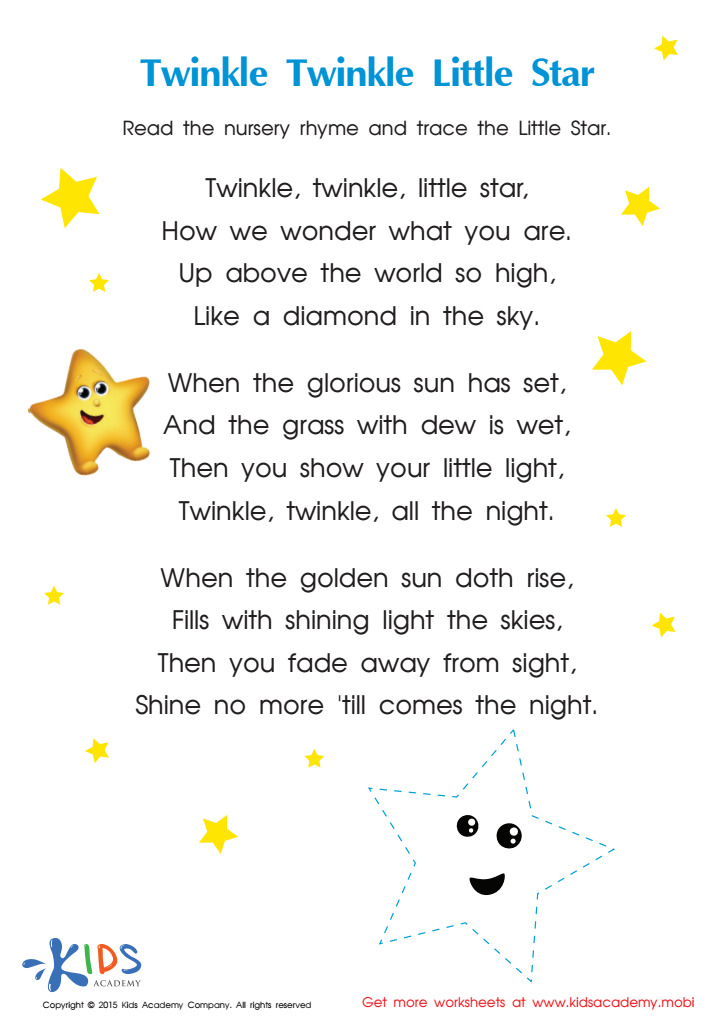

Nursery Rhymes: Twinkle Little Star Worksheet
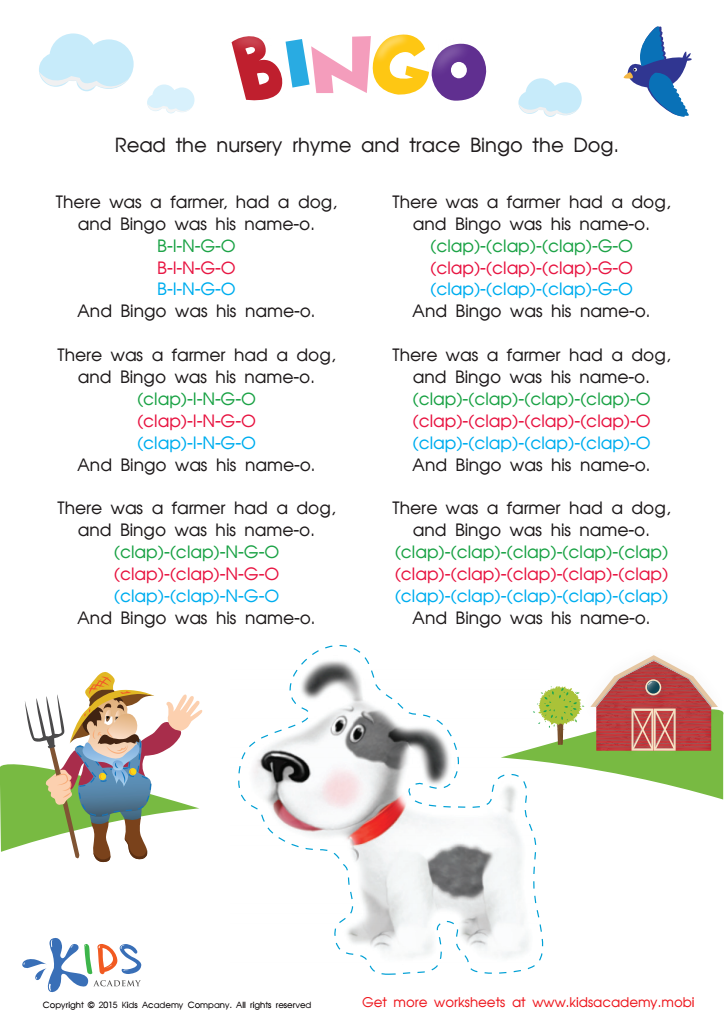

Nursery Rhymes: The Bingo Song Worksheet
Nursery rhymes play a crucial role in the early development of children aged 3-9, providing more benefits than just entertainment. Parents and teachers should care deeply about incorporating easy nursery rhymes into their child's daily routine because they serve as foundational building blocks for literacy and language skills. Rhymes help enhance a child’s phonemic awareness—the ability to hear, identify, and manipulate phonemes—which is essential for learning to read.
The repetitive nature of nursery rhymes also aids memory development, improving cognitive skills like sequencing and pattern recognition. Additionally, they introduce children to the rhythm and melody of language, making it easier to develop speaking and listening skills. This rhythmic introduction can pave the way for future poetry and appreciation of literature also fostering creativity and imagination.
Socially and emotionally, nursery rhymes teach children how to interact with peers through singing in groups, taking turns, and acting out stories. They often come with moral lessons or simple stories that can instill core values and love for storytelling. Moreover, these activities can create bonding opportunities between parents, teachers, and children, making learning a joyous and interactive experience.
In summary, parents and teachers should prioritize nursery rhymes as a multifaceted tool that contributes significantly to early childhood development, setting a strong foundation for future learning and growth.
 Assign to My Students
Assign to My Students




.jpg)



